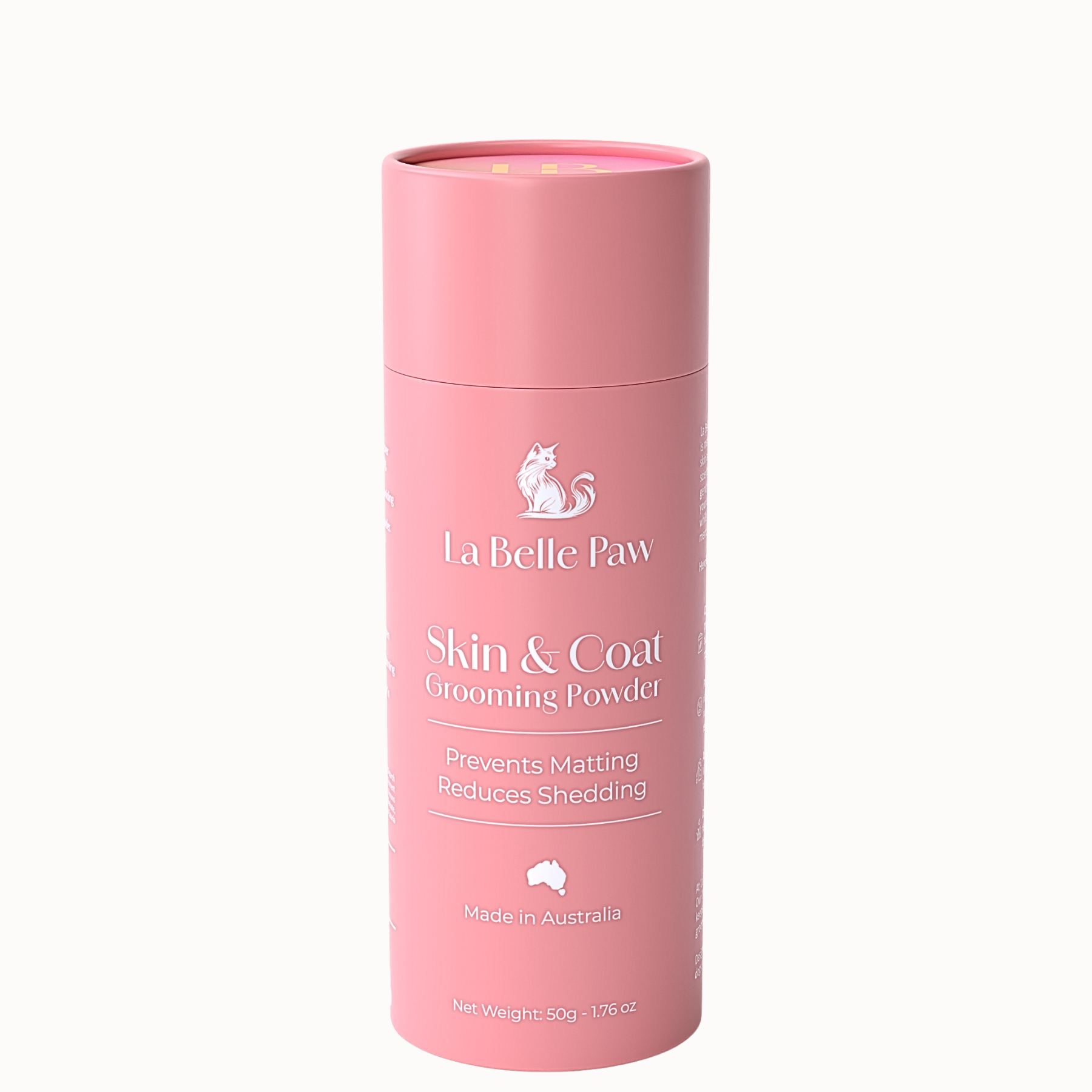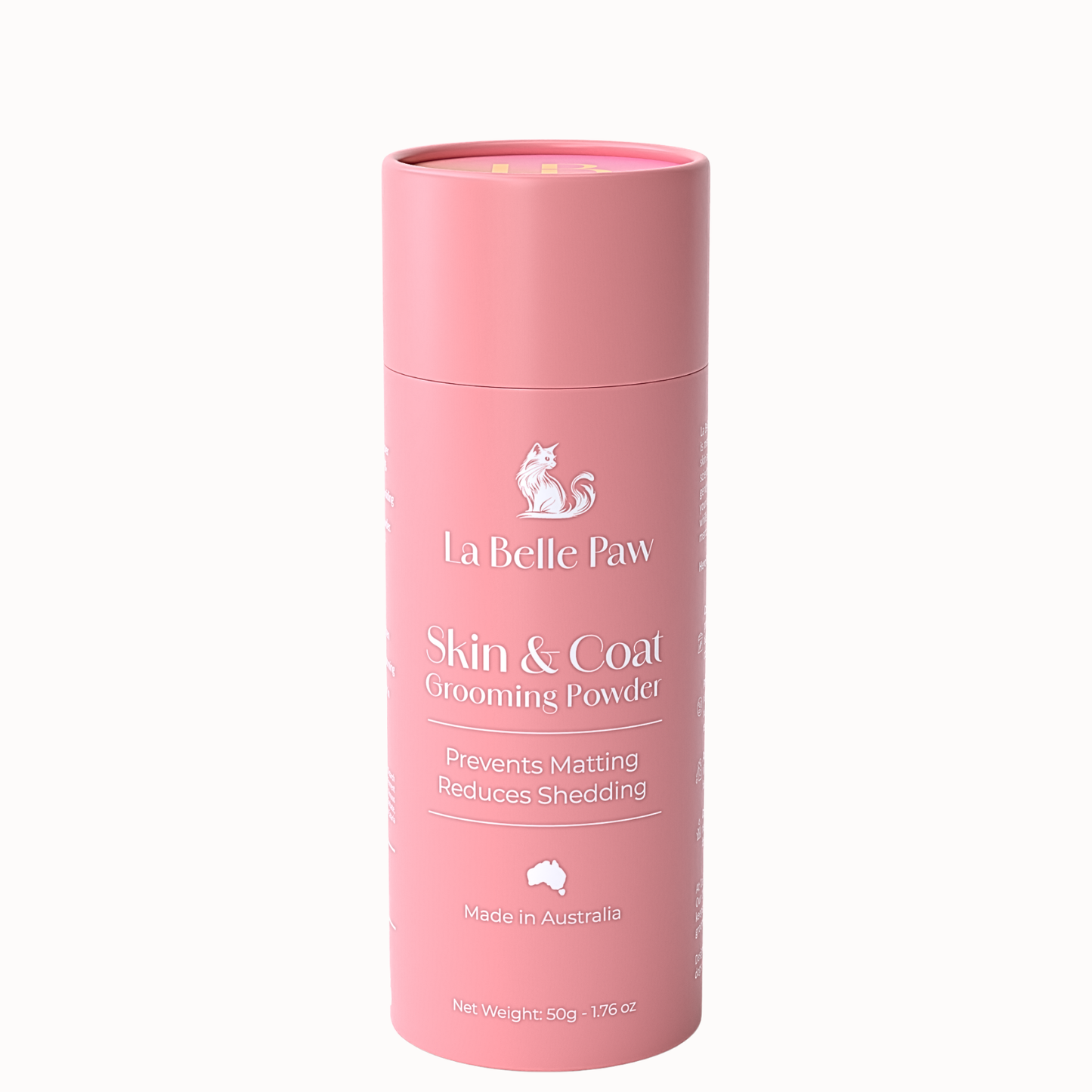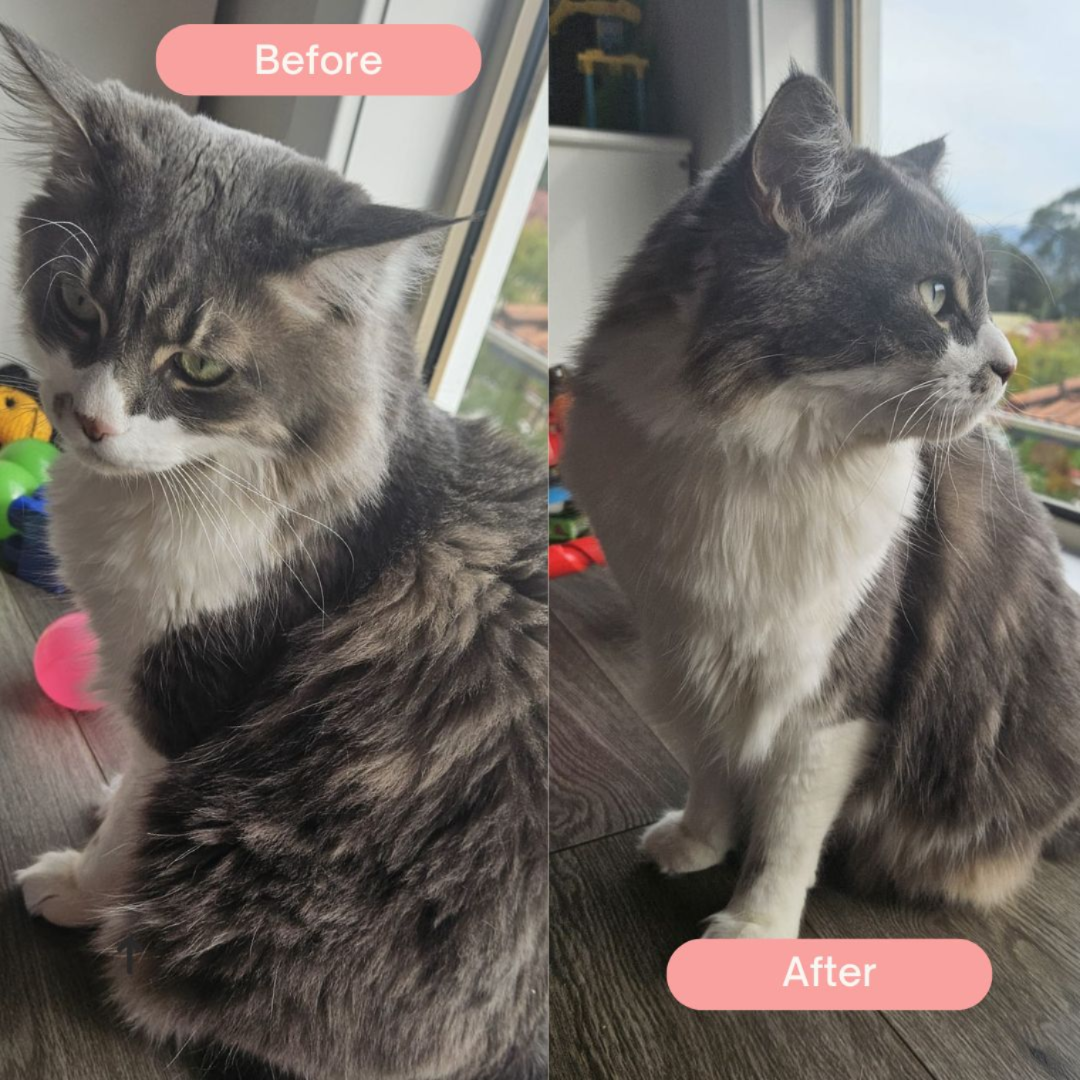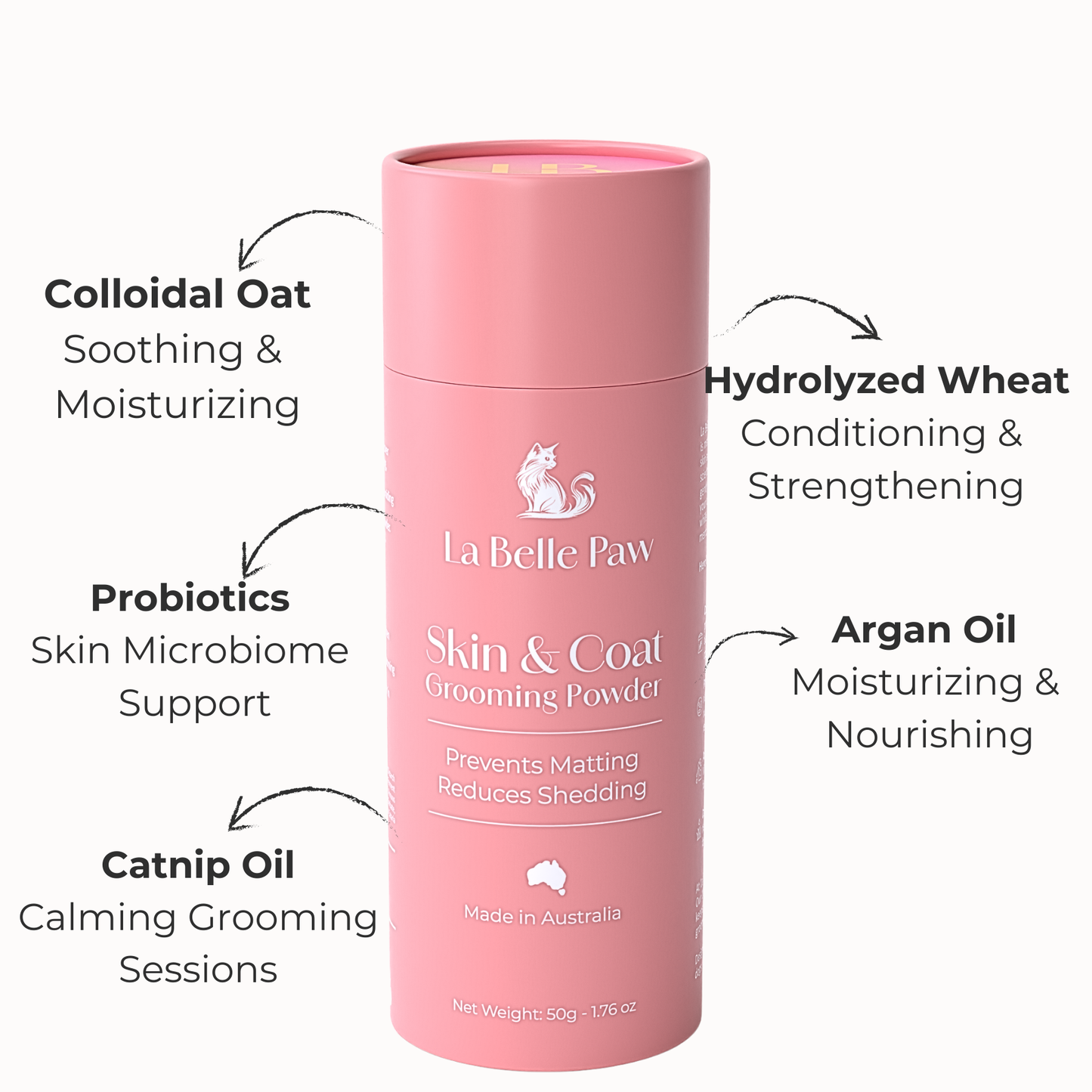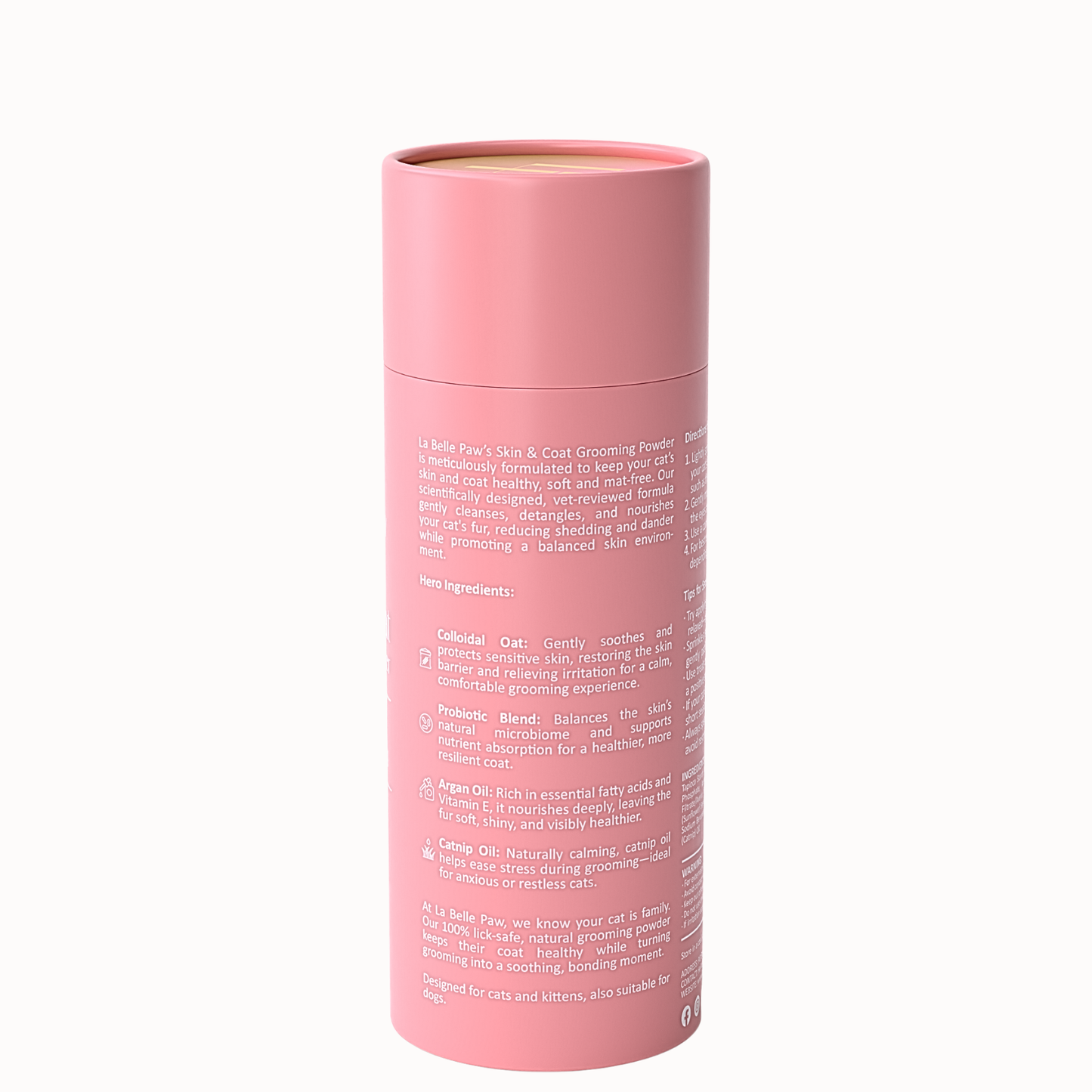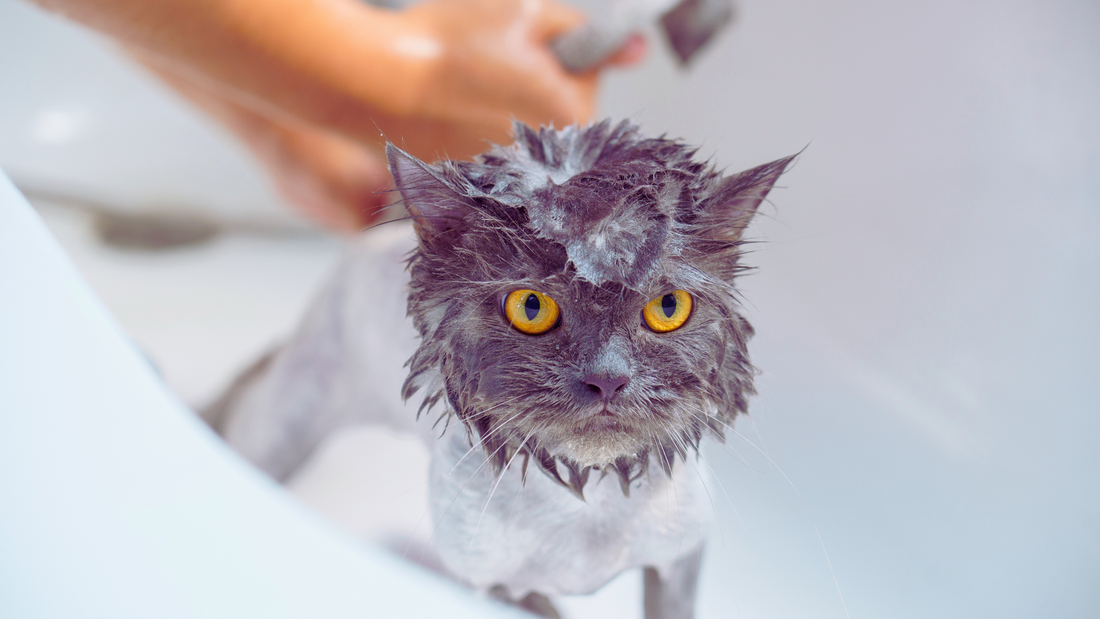
When Should I Use a Waterless Shampoo on My Cat?
Share
As cat owners, we all want to keep our feline companions clean and comfortable without causing them stress. Since most cats hate water, traditional baths can be a nightmare—for both the cat and the owner. That’s why many people turn to waterless shampoos, thinking they’re a quick, stress-free solution.
But before you reach for a bottle of dry shampoo, ask yourself: Is it really safe for my cat? The answer might surprise you. Let’s take a closer look at when (if ever) you should use a waterless shampoo on your cat, and why you might want to reconsider.
The Hidden Risks of Waterless Shampoos for Cats
Waterless shampoos are designed to clean a cat’s fur without water. They come in sprays, foams, wipes, or powders and are marketed as an easy alternative to bathing. But not all waterless shampoos are created equal, and some may actually do more harm than good.
1. Hidden Ingredients That Could Harm Your Cat
Many waterless shampoos contain ingredients that aren’t fully disclosed, making it difficult to know what you’re putting on your cat’s fur. Some common harmful ingredients include:
🚨 Artificial Fragrances – Can cause skin irritation and respiratory issues.
🚨 Alcohol & Parabens – Strip away natural oils, leading to dry, itchy skin.
🚨 Preservatives & Chemicals – Can trigger allergic reactions or toxicity if ingested.
Since cats groom themselves constantly, anything applied to their coat will eventually end up in their stomach. If a waterless shampoo contains harmful ingredients, your cat is essentially eating them!
2. Skin & Coat Damage Over Time
Waterless shampoos only mask dirt and odors rather than truly cleaning your cat’s coat. Worse, repeated use can:
❌ Dry out the skin – Leading to flaking and irritation.
❌ Cause over-grooming – As your cat tries to remove the residue left behind.
❌ Weaken the coat – Making it more prone to shedding, matting, and dullness.
Instead of improving your cat’s hygiene, many dry shampoos can actually create more skin and coat problems.
3. Respiratory & Allergy Risks
Many waterless shampoos come in aerosol sprays or fine powders, which can be inhaled by your cat. This is especially dangerous for:
⚠️ Cats prone to asthma or respiratory issues.
⚠️ Senior cats or kittens with weaker immune systems.
If you notice sneezing, coughing, or excessive scratching after using a waterless shampoo, your cat might be having a reaction to the product.
Is There a Safer Alternative?
If waterless shampoos aren’t the best choice, what should you use instead? The answer: a gentle, non-toxic grooming powder designed specifically for cats.
Why Skin & Coat Grooming Powder Is a Better Option
✅ 100% Safe if Ingested – No toxic chemicals, fragrances, or harmful preservatives.
✅ No Artificial Fragrances or Alcohol – Gentle and non-irritating for sensitive skin.
✅ Supports Healthy Skin & Coat – Infused with colloidal oatmeal and argan oil to soothe and hydrate.
✅ Prevents Matting & Reduces Shedding – Unlike dry shampoos, it actually improves coat condition.
✅ No Respiratory Risks – Powder-based, no aerosols or airborne irritants.
✅ Calming Effect – Contains catnip oil, helping relax anxious cats during grooming.
Unlike waterless shampoos that just mask dirt, Grooming Powder Skin & Coat absorbs oil, refreshes the coat, and improves skin health naturally.
Make the Right Choice for Your Cat
So, when should you use a waterless shampoo on your cat? The reality is, you probably shouldn’t—at least, not without checking the ingredients. Many dry shampoos on the market contain hidden dangers that could harm your cat over time.
Instead, choose a safer, healthier option:
✔ Ditch waterless shampoos with harsh chemicals.
✔ Use a pH-balanced, cat-friendly alternative.
✔ Keep your cat’s coat healthy, fresh, and mat-free—without the risk.
👉 Try Skin & Coat Grooming Powder today and give your cat the care it deserves!
Additional Resources
📌 Anita Kelsey’s Guide to Safe Grooming
📌 ASPCA Grooming Tips
📌 RSPCA Cat Care Guide
Your cat deserves the best care—make the safe choice today! 🐾✨


